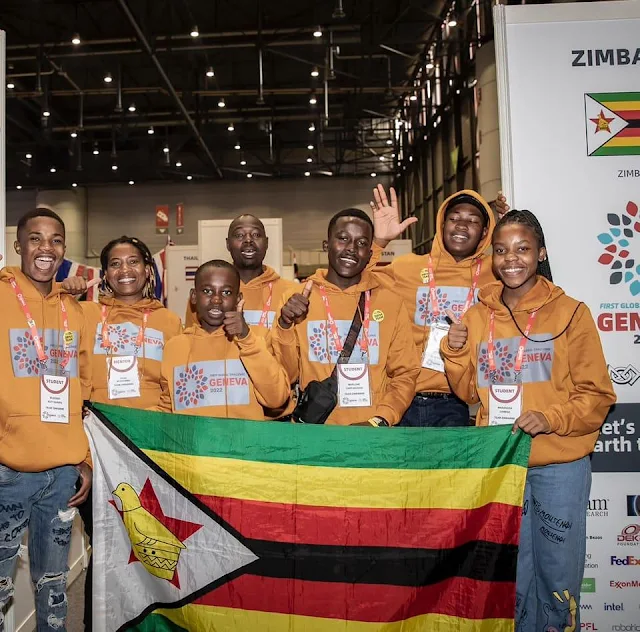Zimbabwe's Robotics team, from Tynwald High School, won the XPRIZE Gold Medal Innovator award, at the 2022 FIRST Global Challenge games - an Olympics-style, international robotics competition for high-school students from around the world that aims to celebrate Science, Technology, Engineering, and Mathematics — also known as STEM in a similar way to how Athletics and Sports are celebrated. Second in that category was Indonesia whilst Greece took home the Bronze medal.
The competition involving more than 180 countries was held from 13 to 16 October 2022 in Geneva, Switzerland.
 |
| FIRST Global Zimbabwe Team |
This is the second consecutive win for the FIRST Global Zimbabwe team who also clenched the Grand Challenge Gold Medal last year in 2021 at the international robotics competition.
The FIRST Global Challenge games take place in a different country each year.
FIRST Global is a US-based nonprofit public charity established by the founder of FIRST® (For Inspiration and Recognition of Science and Technology), Dean Kamen which aims to nurture cross-cultural communication and cooperation among high-school students from around the world through STEM.
FIRST Global invites each nation to send a team to build and program a robot to compete. Teams work together to complete tasks in a game themed around one of the greatest challenges facing our planet, including the 14 Grand Challenges for Engineering, to foster understanding and cooperation among the youth of the world as they use their abilities to solve the world’s problems. "The challenges we face as a global society need to be solved, and the next generation can meet the task — together." reads a statement from the FIRST Global website.
The 2022 FIRST Global Challenge game was Carbon Capture. Six national teams worked together as a single global alliance to capture and store carbon, demonstrating the collective effort required to protect our shared atmosphere.
They were then divided into two regional alliances to employ local solutions to achieve effective long-term storage methods and slow the effects of climate change. Robots scored points by collecting black plastic perforated balls – representing the carbon dioxide emissions generated by combustion – and storing as many as possible in the central sink.
Robots could store the carbon directly, or use the corner compressors for human player assistance to transport it to the sink. Toward the end of the match, robots secured long-term storage of captured carbon by positioning themselves on the platform at the base of the sink or on cantilevered bars mounted to the sink.
Check out the highlights from this year's competitions below.
FIRST Global Zimbabwe did not immediately respond to requests for comment at the time of publishing.
Enjoyed reading this entertainment news report? Support Greedysouth by buying the team a cup of coffee. Your support assists in the production of such quality reports. Thank you.